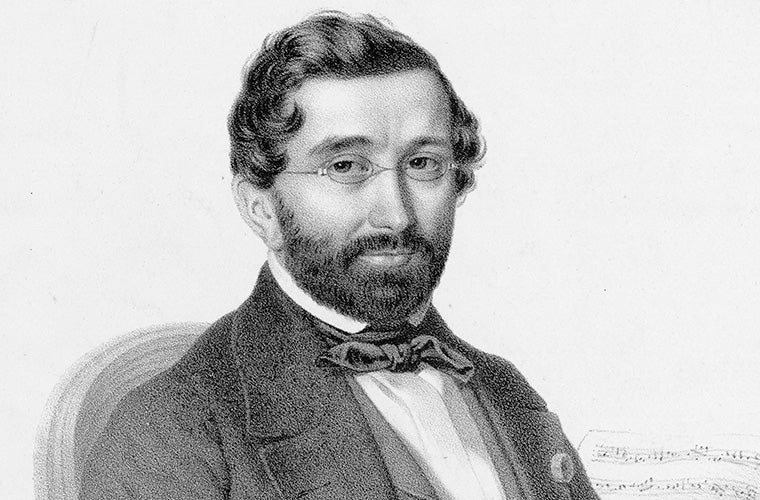
Adolphe Charles Adam
1803 - 1856
Biography
Adolphe Charles Adam was born in Paris, France on July 24, 1803, to concert pianist, composer, and teacher Jean Louis Adam. With little encouragement, Adolphe decided in childhood he wanted to compose music.
His studies at the Paris Conservatory introduced him to some of the finest musical instruction available. He learned the organ from Francois Benoist, a winner of the prestigious Prix de Rome. French comic opera composer Francois-Adrien Boieldieu taught and mentored Adolphe in musical composition. Boieldieu was so impressed with Adam’s talent that he asked him to help orchestrate the overture to his opera La Dame Blanche. It was expected that Alphonse would win the Prix de Rome for his efforts, but he was instead awarded second prize. Adam then traveled to Belgium, Holland, Germany, and Switzerland. While in Geneva, he met Eugène Scribe, the librettist for Boieldieu’s La Dame Blanche, with whom he would collaborate for the next 30 years.
Adam's work as a composer began with providing material for vaudevilles at venues such as Théâtre du Gymnase. Around 1830, he began making a name for himself in France with a one-act opera Pierre et Catherine and the ballet La Chatte Blanche. His first significant international success came in 1836 with the comic opera, Le Postillon de Lonjumeau (The Coachman of Lonjumeau). The composition for which Alphonse Charles Adam is best known is the music he wrote for the ballet, Giselle (1841). Not only is the music of superior quality, many famous ballerinas such as Pavlova, Markova, Fonteyn, and Makarova have danced the title role.
In 1850, he composed the Christmas song Cantique de Noel (O Holy Night), which became one of the most performed and recorded pieces of music.
On May 3, 1856, Alphonse Charles Adam died quietly in his sleep at age 52 having written forty operas and numerous light operas and vaudevilles. His influence, however, lived on in his students, most notably, Clément-Philibert-Léo Delibes (1836-1891). Adam continued the work begun in his youth with Boieldieu by teaching and mentoring Delibes, who himself contributed greatly as a composer to French ballet and opera of the nineteenth century.